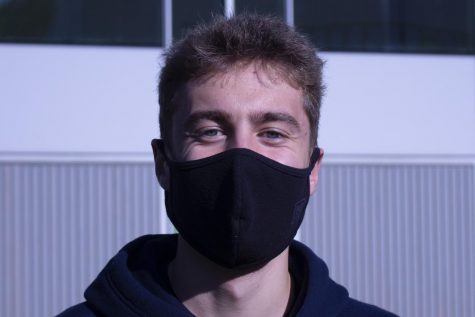Nagorno-Karabakh conflict
If Europe needed another border dispute that risked brewing into open warfare, Armenia and Azerbaijan delivered in spades.
Tensions between the two neighbors escalated dramatically this past week, as militaries engaged in artillery launches and skirmishes between soldiers, both of which resulted in 200 deaths. The multi-decade conflict between the two nations has boiled over into military conflict on a number of occasions.
This skirmish, while largely consistent with those of the past, has new geopolitical implications, outside Turkey and Russia, two outside powers, are attempting to use the situation to advance their regional influence.
Captured in leaked videos from the Azerbaijani military, Turkish drones were seen targeting Armenian positions along the disputed border. Additionally, fighter jets from the Turkish air force were seen parked at Azerbaijani airfields.
Turkey’s choice to back Azerbaijan is unsurprising, given their fraught history with Armenia. Between 1914 and 1917, 1.5 million Armenians were expelled and subsequently killed in what is now considered a genocide. Since then, they failed on multiple occasions to even establish diplomatic relations, let alone formally resolve the now 100-year-old conflict.
This next election in the U.S. will have far-reaching consequences for the world, perhaps more so than any in recent memory.
Turkish intervention in the conflict follows an increasingly interventionist foreign policy that Recep Tayyip Erdo?an, the country’s president, has championed over the last few years. His military has undergone reorganization and has seen its budget swell ever since Erdo?an took power. Interventions in Libya, to back the UN government under siege from Libyan warlords, as well as an offensive to clear Kurdish groups from Northern Syria serve as products of this.
Like Turkey, Russia has also sought to insert itself in the conflict, but, uncharacteristically, has taken up a diplomatic role in the dispute. The Kremlin called for a ceasefire and was brokering talks between the two sides in a trilateral conference Oct. 9. This runs in direct opposition to much of Russia’s foreign policy in the Vladamir Putin-era, as the Russian President has embraced interventionist tactics, such as his deployment of troops to both the Syrian and Libyan conflicts.
Russia also is perhaps looking to fill the diplomatic void created by the U.S.’ increasing absence from foreign affairs. U.S. President Donald Trump has sought interventionist economic policies, coupled with rhetoric critical of the E.U. and other traditional U.S. allies. While previous administrations have sought to broker talks between the two countries, the Trump administration has made no such efforts.
With European leaders largely out of the picture, it will be up to Russia to attempt to find a solution to this multi decade-long conflict. However, whether it will seek to bandage up the current wounds, or attempt to solve the broader border dispute, is unclear.
Regardless, skirmishes like this one are products of an increasingly absent American presence in global affairs. This next election in the U.S. will have far-reaching consequences for the world, perhaps more so than any in recent memory.
No buzz about the Vice Presidential debate
The star of the Vice Presidential Debate Oct. 7 was neither Vice President Mike Pence nor Senator Kamala Harris, but a fly. The insect landed on Pence’s snow-white hair during the debate and stayed there for over a minute. Its popularity eclipsing that of the candidates does nothing if not explain the insignificance of Wednesday’s debate.
Pence’s advisers clearly knew what the Biden-Harris campaign would bring on the issue of the virus, and it was a failure of Harris to rehash the same points they have already exhausted.
Given the character differences between the Vice Presidential candidates and the Presidential candidates, this debate was expected to be slightly more cordial. This was largely the case, but the occasional interruption or sharp-toned exchange still popped up during the 90 minutes.
Whereas a winner could not be determined in the crossfire that was the Trump-Biden debate, the more polite nature of the Harris-Pence debate did allow such a conclusion. Too bad that conclusion was a draw.
For much of the debate, Pence was resigned to defending Trump, after Harris embarked on a campaign to ridicule the administration’s first term. Harris came after Pence for the Trump administration’s response to COVID-19, but the Vice President seemed prepared to refute such an argument, claiming they put the health of U.S. citizens first from day one.
Pence’s advisers clearly knew what the Biden-Harris campaign would bring on the issue of the virus, and it was a failure of Harris to rehash the same points they have already exhausted. While driving the knife in is often effective in debates, Harris needed to try a different angle to really throw Pence off his game.
The Vice Presidential debate is generally glossed over in the larger portrait of an election. Harris and Pence didn’t put on enough of a show to change that tradition. Maybe this conclusion is harsh, but one certainty is that both candidates were overshadowed by their running mates’ boisterous exchange in the first debate.
Down in the polls, the Trump-Pence ticket needs to take advantage of these debates, as they face a tough closing stage battle with a pandemic still raging through the U.S. and widespread outcry over systemic racism. Halfway through the debates, it doesn’t seem like the incumbents are setting themselves up for success Nov. 3.









